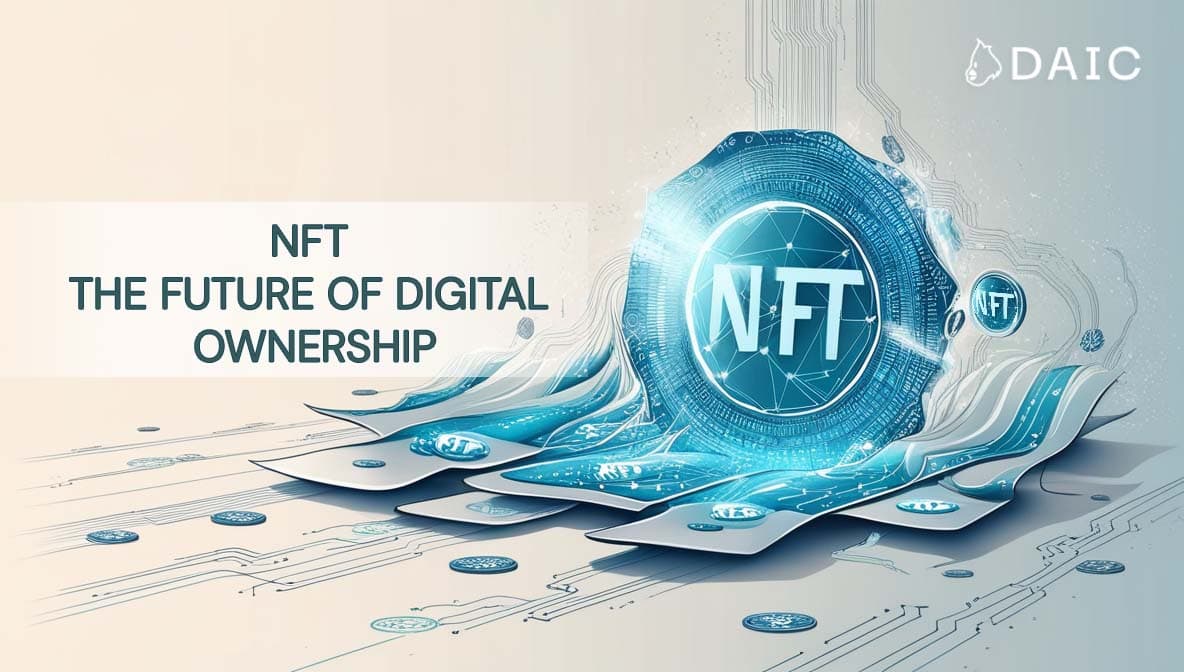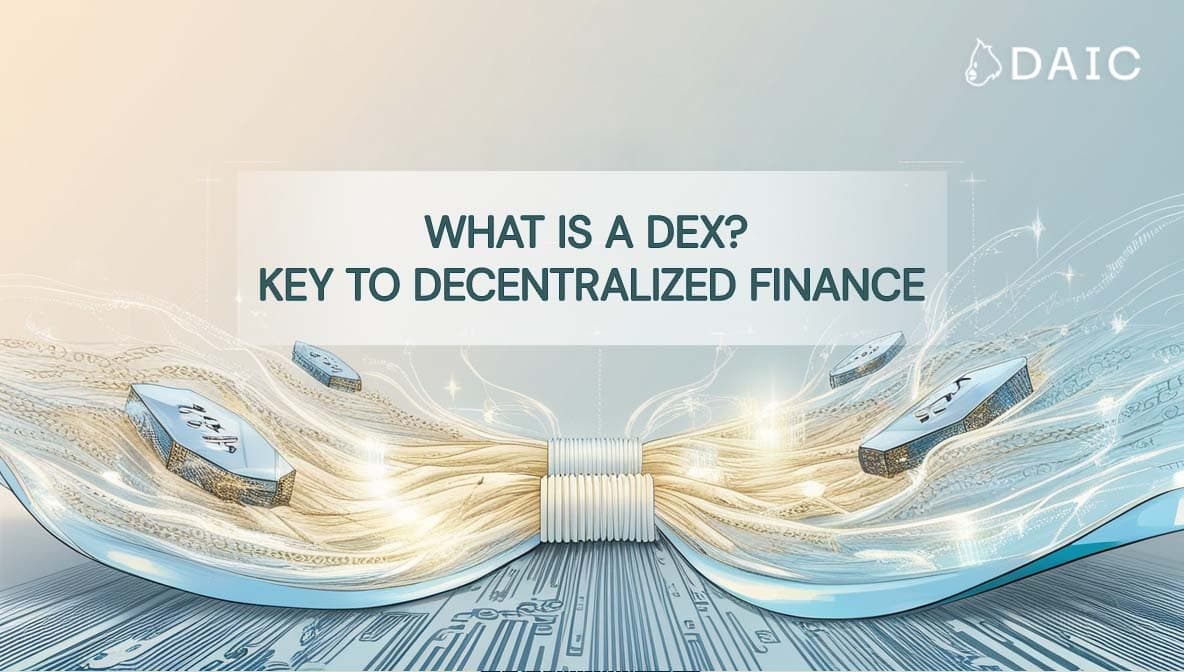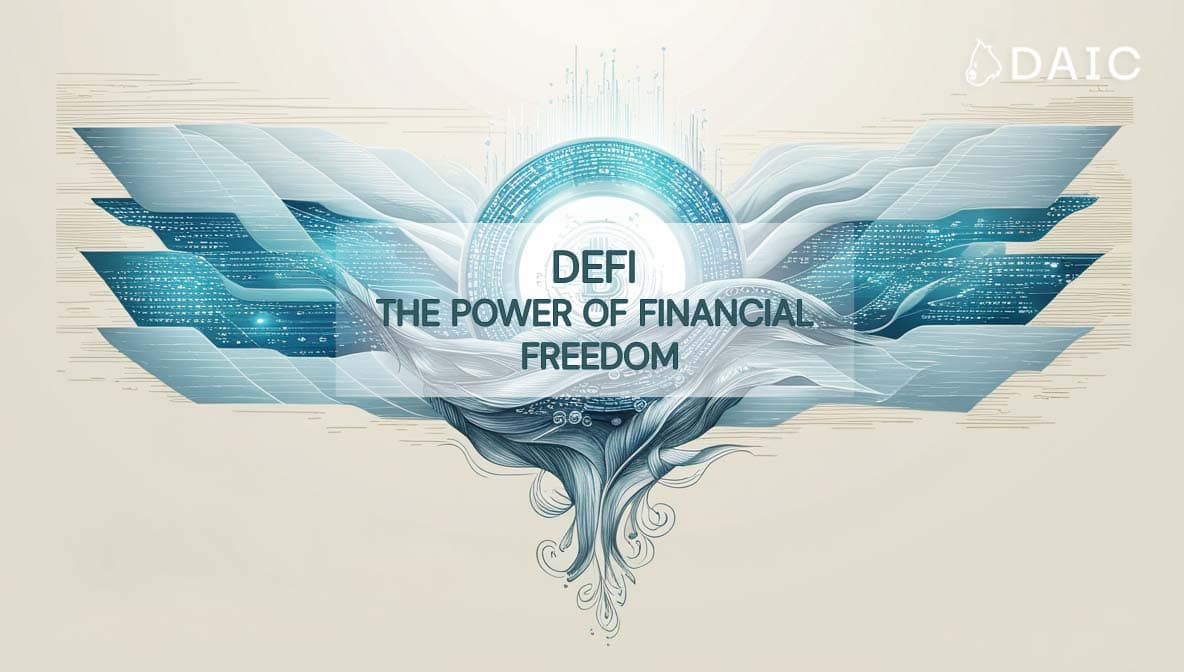Have you ever felt that your online is turning into a gilded cage, highly elaborated and contrived, with the purpose of keeping your attention and monetizing your every action? If the walls of Web2 are closing in, the time has come to explore the liberating potential of dApps - the building blocks of a decentralized internet. dApps are an innovative offspring of blockchain technology and a far more compelling alternative to traditional applications.Join us as we dive into the world of dApps, where innovation thrives, censorship crumbles, and the true power of the internet is finally unlocked.
Key Takeaways
- User-Centric: dApps are all about user-centered design, where you retain your data and digital identity.
- Open-Source Nature: A large number of dApps are open-sourced, thus community-reviewed and editable, which helps in building trust and collaboration in the project.
- Enhanced Security: The use of blockchain makes dApps very resistant to breaches and data manipulation.
- Censorship Resistance: Since dApps operate on decentralized networks, they are censorship-resistant and cannot be controlled.
What Exactly Are These "dApps"?
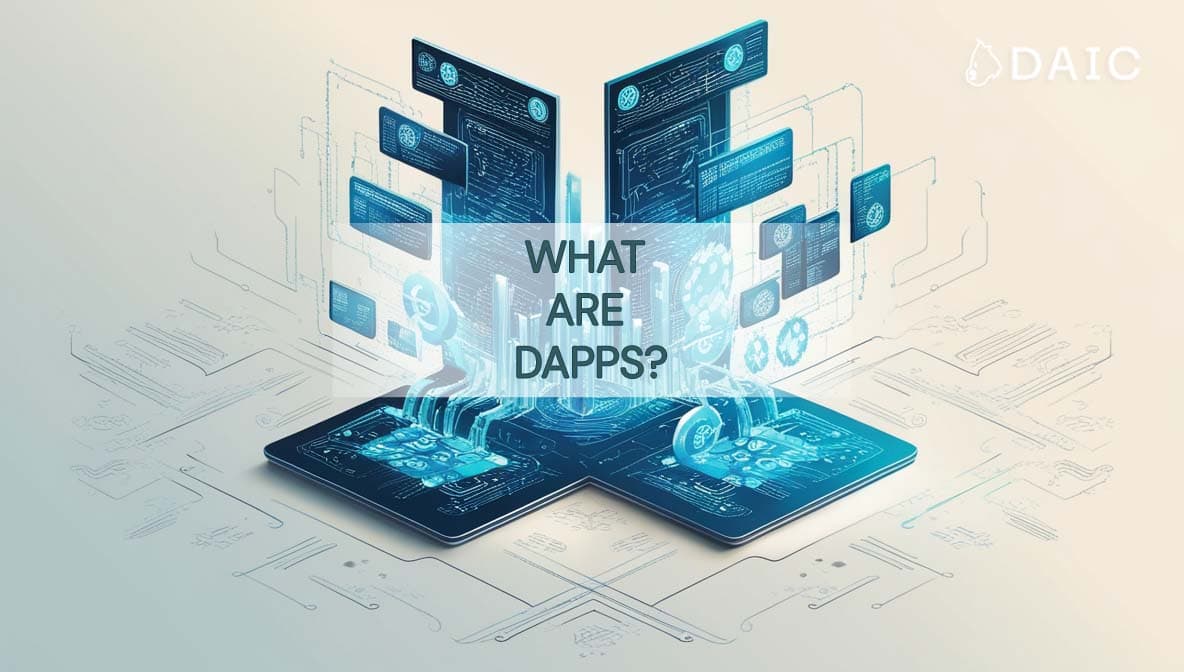
To understand this revolution of dApps, it is very significant for us to just go back right from the very genesis and revisit the important milestones that have happened during the evolution of the internet.
Web1 was the infancy: a static read-only website domain. Next up, Web2 took over the interaction era: controlled by centralized platforms, social media giant corporations. But as much as it did in connecting us to what was unimaginable, it created another, darker era - data exploitation or surveillance capitalism.
Now, welcome to Web3, the blockchain-powered internet in a decentralized manner. DApps form a very important part of this new creation and represent an imposing force for shifting dynamics away from the highly centralized Web2.
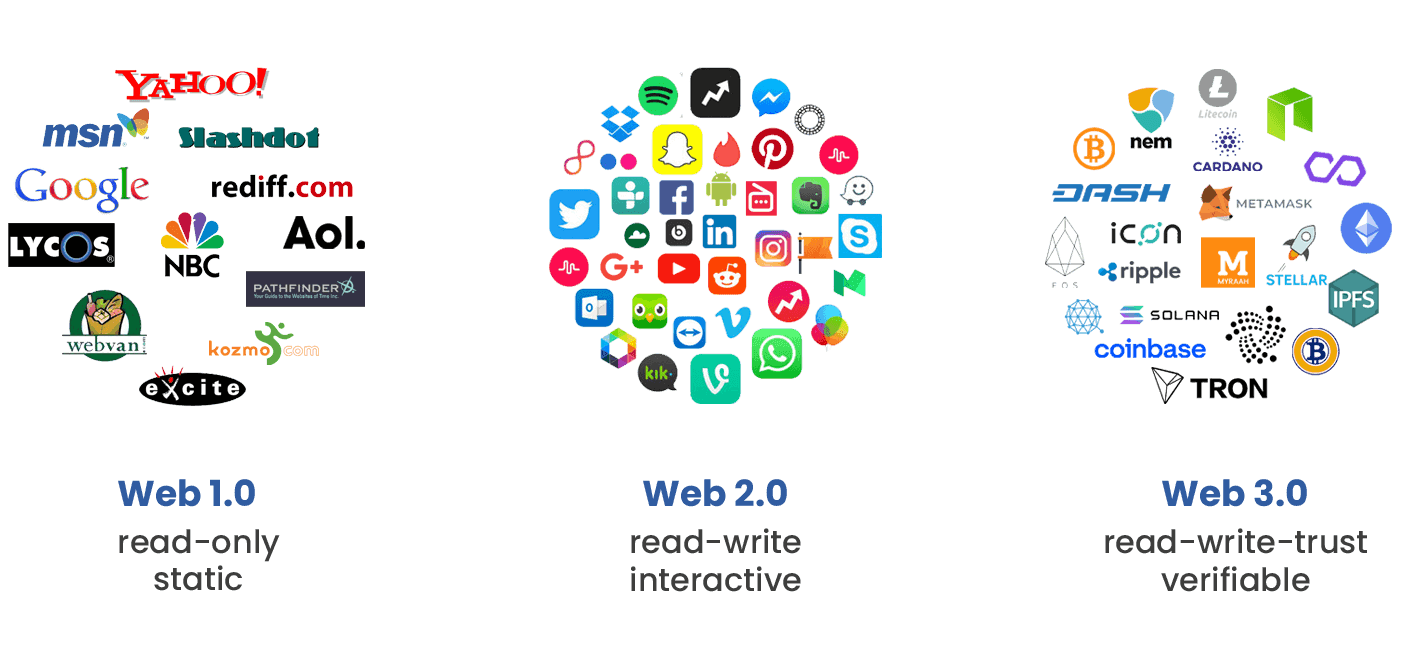
Simplistically, the decentralized application - dApp is an open-source software program that functions on the blockchain network. As opposed to classic applications whose back-end code sits on centralized servers, in dApps, it runs on a decentralized peer-to-peer network. That difference in architectural way gives the applications the traits making them quite different from traditional ones: dApps aren't controlled by a single entity.
Think about it: a social media platform where you actually own your data, a gaming world where you truly own the in-game assets, and financial systems that have you in total control over your money without any middlemen. That's what dApps enable.
Immutability is a defining feature of dApps. Once something is recorded on the blockchain, it cannot be changed. Thus, it is tamper-proof and allows for integrity and auditability of data. Such immutability engenders a trust and transparency environment, as users themselves can verify the very authenticity and history of data without intermediaries.
Furthermore, dApps are intrinsically resistant to censorship. Since applications are self-governing in nature, nobody can ban or prohibit access to the application. This resistance to censorship will be most wanted when online freedom and data privacy face growing threats.
How Do dApps Work?
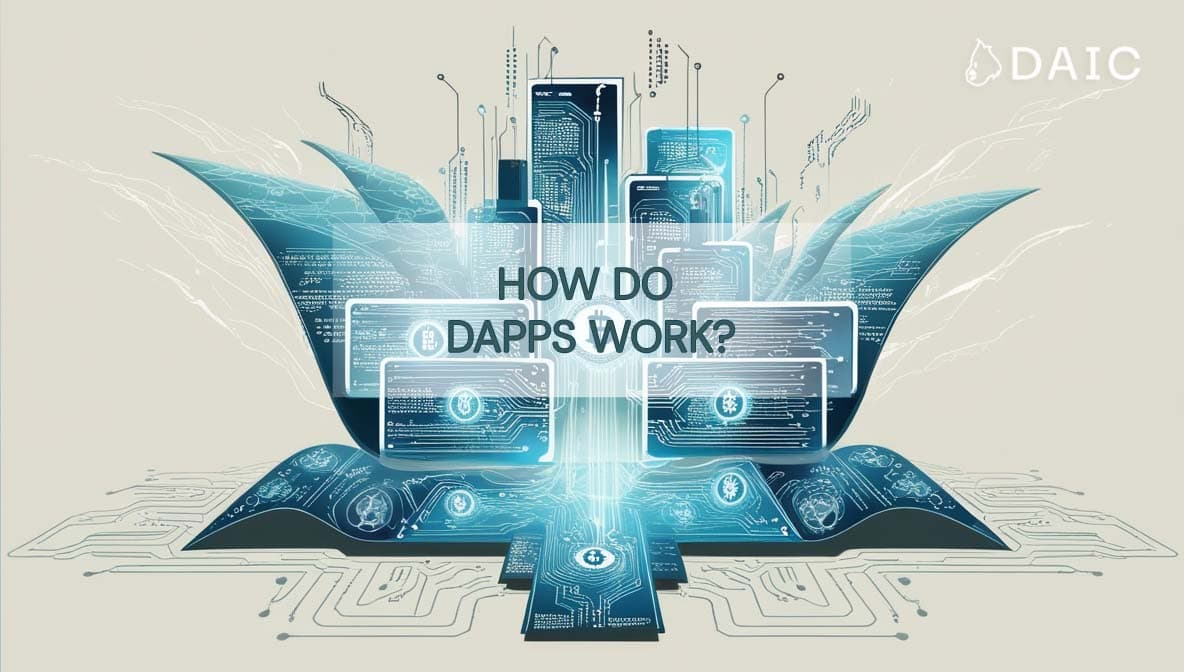
DApps are a suite of decentralized applications that depend on decentralized networks, smart contracts, tokens, user interfaces, and consensus mechanisms to provide secure, transparent, and efficient interactions with digital technology.
Decentralized network
DApps are programs that run across multiple computers, rather than from a single server. Usually, this network is a blockchain, which is a decentralized database storing data and transactions across a network of nodes.
Consensus
In the decentralized architecture of a network, the consensus provides validity and security for every transaction or data within dApps. There are different kinds of consensus mechanisms, such as Proof of Work and Proof of Stake, for reaching consensus.
Tokens
DApps also involve tokens, a digital way of showing value: cryptocurrency or virtual assets, that are stored on the blockchain and used by users to pay for certain services.
Smart Contracts
Most dApps involve smart contracts: digitally stored agreements on the blockchain that can self-execute if certain conditions are met. Smart contracts let dApps act on their own, building a more secure and transparent digital experience for users. For example, dApp can use a smart contract to enable lending and borrowing between users without the involvement of a central authority.
The Transformative Power of dApps
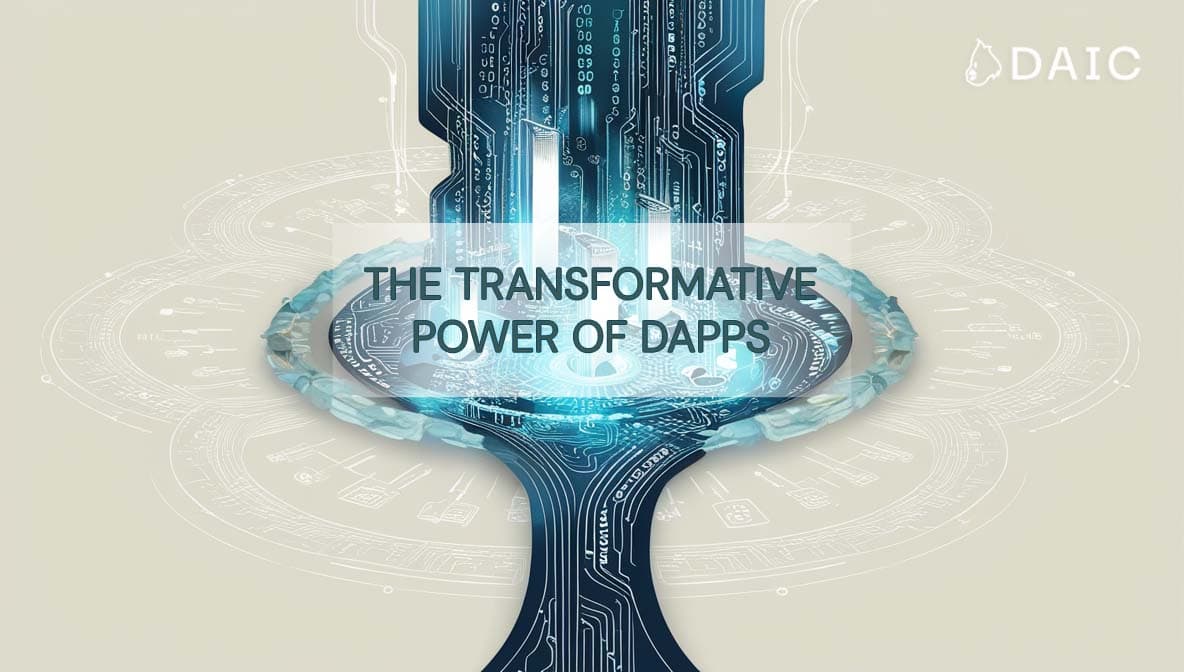
DApps mean a lot more in their power than an advancement of technology. They are revolutionary, changing whole industries and redefining how we interact on the internet. In the financial world, dApps have been viewed as an enabler in the rise of DeFi, or decentralized finance, which allows users to lend, borrow, and trade with permissionless access to financial services. Democratization of finance this way empowers individuals and communities, especially those that traditional systems have under-served or ignored.
A dApp-driven revolution awaits the gaming industry, too. Blockchain-based games give players real ownership of in-game assets - a unique feature that opens entirely new economies and enables player interaction in ways unimaginable before. Further, dApps are reinventing social media, supply chain management, health, and scores of other industries with creative solutions to age-old problems.
Ready for a tour? Let's see some kinds of dApps.
DeFi are revolutionizing the way we manage our money, and Cosmos ecosystem nurtures a growing ecosystem of dApps with different functionalities and specific benefits.
Osmosis blockchain is the house of many big applications and represent a full suite of DeFi tools, among them are Osmosis Zone and Mars Protocol. Osmosis Zone is a decentralized exchange that offers cross-chain token swaps and allows users to become liquidity providers. Mars Protocol facilitates lending and borrowing in a completely secure and transparent way. Kava Lend is a clear money market built on the Kava blockchain to give users an easy way to earn interest and/or take loans in a seamless manner. OraiDEX introduces a suite of AI-driven tools to make trading more effective, all powered by the Oraichain network. This includes accurate price feeds and even AI-driven strategies. FIN, DeX powered by the Kujira blockchain, utilizes an order book that feels traditional but is thoroughly decentralized.
Speaking about games, imagine playing games where you really own your in-game assets and can trade them freely. That's the power of blockchain gaming dApps.
Flow has become somewhat of a hotspot for gaming dApps, including a number of NFT-focused projects. For instance, NBA Top Shot gives fans ownership over NBA highlights in the form of NFTs, fueling the rise of play-to-earn games.
The creative explosiveness of Sui: over 40 games and many, many more in rapid development. Feeding that fire is Mysten Labs and projects like Play Beyond - a single entry point into both playing and making immersive gaming experiences. Whether a seasoned gamer or a curious newbie, the Sui ecosystem has something to say about the future of interactive entertainment: ownership, community, and innovation collide. Our research reveals an emerging, highly creative ecosystem on Sui, filled with innovative ideas and solutions.
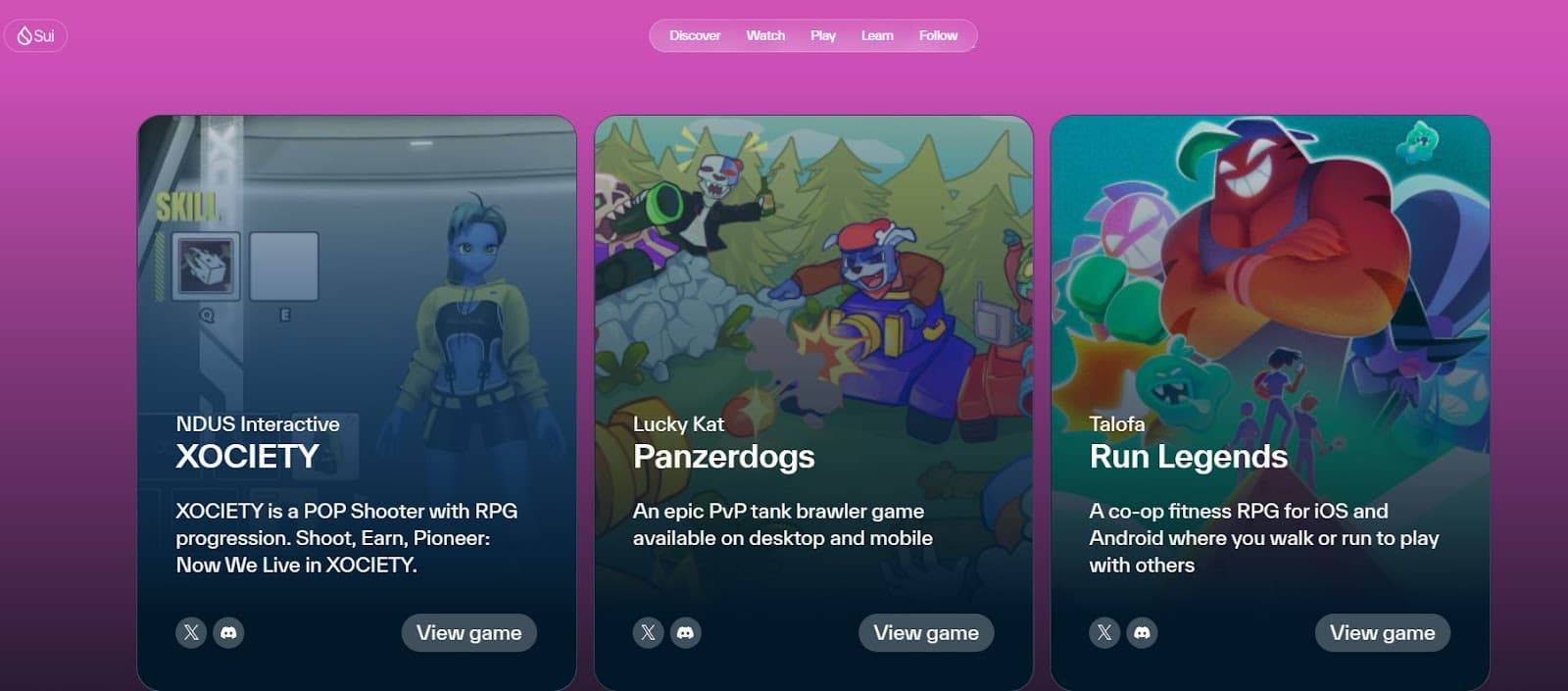
Moreover, dApps are drivers of innovation toward a more decentralized, user-centric social media landscape. Just think about owning your data, being in full control of your content, and connecting with communities free from censorship and algorithmic manipulation. This dream now comes true through innovative projects like the MEME Network.
The planned MEME Social Media Platform will be a home for creators and meme enthusiasts alike, built on its own blockchain, guaranteeing a censorship-resistant environment where content is stored securely and immutably. It will allow seamless integration with MEME Art to let users create and share NFTs within the social circle, further blurring the lines between content creation, ownership, and monetization. The MEME Network is focused on building an end-to-end ecosystem that empowers users to unleash their creativity in fostering a dynamic, meme-based economy by planning the development of the NFT Marketplace, MEME Name Service, and MEME Gift Card.
While the MEME Network is still a work in progress, other projects are already creating waves in the space of decentralized social media. Dmail, part of the Sei ecosystem, provides the necessary infrastructure for safe and private communication. Its encrypted e-mail, unified notification system, and targeted marketing tools are essential building blocks for any decentralized social platform.
And then there is Mask Network, serving as a bridge between the comfortable, known world of Web2 and the emergent topography of Web3. It is a browser extension that overlays decentralized functionalities onto existing platforms like X, Facebook, and Instagram, enabling users to send encrypted messages, manage crypto assets, and interact with dApps right from within their favorite social haunts.
This is an immense landscape of dApps, and just a few samples have been touched upon in the above discussion. Every blockchain ecosystem, it is almost like a parallel universe with its own pool of dApps designed for different purposes.
And the best part? We're all part of this adventure!
Whether you're a developer, a user, or just a curious explorer, you have a role to play in shaping this decentralized future. So, let's keep exploring, keep building, and keep pushing the boundaries of what's possible. The future of the internet is in our hands, and it's looking brighter than ever!
The information provided by DAIC, including but not limited to research, analysis, data, or other content, is offered solely for informational purposes and does not constitute investment advice, financial advice, trading advice, or any other type of advice. DAIC does not recommend the purchase, sale, or holding of any cryptocurrency or other investment.
